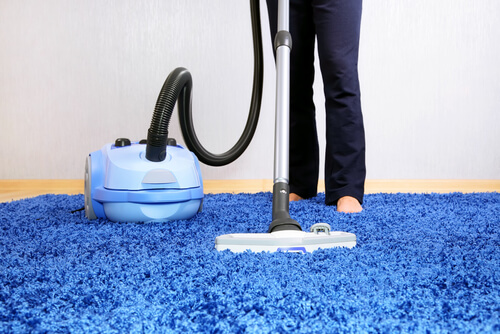Housework Can Be Therapeutic

“Cleaning the house” doesn’t just have a literal meaning, but also a symbolic one: getting rid of emotional weight, leaving behind things that are of no use anymore. It’s easy to see how disorder can cause stress and anxiety. If housework is done as a mindfulness exercise, it can offer important benefits. Housework can be therapeutic for many.
Doing housework as a positive activity and form of exercise can relieve stress, so get ready to do one of the most mundane and unpopular activities with different attitude.
Examples of housework as therapy
Below are a few examples of how housework can also result in a little internal cleansing.
- In some cultures, cleaning the house is a highly valued and important activity. In Japan, for example, it’s called “oosouji,” which means “to clean thoroughly.” They do this cleaning on December 28th so that they can ring in the new year with a clean house. Japanese people see retaining old junk and attitudes into the new year as a bad omen.
- Health professionals say that housework can be relaxing and even meditative. According to psychologist Isabela Pérez-Luna, “Cleaning and organizing function as a means of catharsis and a way to get rid of things you don’t need anymore.”

- In her book The Life-Changing Magic of Tidying Up, consultant Marie Kondo explains that keeping the house clean has a direct influence on happiness and well-being.
- In an interview with Radio Times, British actress Helena Bonham Carter described the therapeutic power of housework. Tim Burton’s partner and muse assures that she no longer has to pay for therapy sessions after discovering “the therapy of cleaning.” She states that “if you put your house in order it gets your head in order as well.”
Cleanliness and Buddhism
Buddhism considers cleaning to be a form of meditation that you can do every day. Buddhist monks consider housework to be a spiritual exercise through which to cultivate and purify your mind, soul, and life.
Don’t forget, one of the Buddha‘s disciples found nirvana while sweeping. According to Buddhists, people are connected to their surroundings, which reflect their mind. They explain that when the environment is disorganized, so is the mind. Thus, if you maintain a clean house, your mind will be calm and clear.
They also believe that cleaning helps the mind focus on the present. Living in the here and now is one of the keys to achieving happiness and success.
The ten commandments of housework
In his book A Buddhist Monk’s Guide to a Clean House and Mind, Keisuke Matsumoto lists the ten commandments of improving your life through housework:
- Treat objects with care. Every object has been created with effort and dedication and must be respected.
- Show gratitude towards the objects that have been useful to you, and get rid of them when you don’t need them anymore. You can give them new life by giving them to someone who could put them to good use.
- It’s best to clean first thing in the morning. If you begin the day in calm and silence, while everyone else is still asleep, your heart will feel at peace and your mind will be clear.

- Before you go to bed, you should put away and organize the things you’ve used and moved around throughout the day. This will make cleaning easier the next day.
- If you clean in the morning and organize at night, you’ll start to notice yourself feeling refreshed throughout the day.
- Before you clean, open the windows and ventilate the house to purify the air. Feeling the fresh air on your skin makes you feel more awake and pure.
- Feeling the wind come in through the window puts you in contact with nature. The air is mild and pleasant in the spring and fall, warm in the summer, and icy in the winter. Feeling both its kindness and its harshness on your skin allows you to connect with your fragility and with the force of nature.
- To show respect for life, clean up after every meal so that you don’t attract bugs and need to kill them unnecessarily.
- Instead of regretting the past or worrying about the future, try to live completely in the present moment. To apply this idea to housework, “don’t put off until tomorrow what you can do today.”
- Dividing and rotating chores among all members of the family will help you value what other people do for you. Understanding that you all depend on each other will help you work as a team and think about others before you act.
Housework can be therapeutic
The need to clean and organize our surroundings essentially comes from the need for renewal. Also, cleaning your environment can be a moment of daily or weekly meditation. Take advantage of the occasion to do a mindfulness exercise.
In order to do so, you have to try not to use that time to solve your problems, watch television, or bicker with your partner.
You have to focus on the act, organize, remain silent, and above all, pay attention to what you’re doing. This state of complete attention will allow you to reach a meditative state in which your brain activity decreases. Thus, you’ll reduce your stress and anxiety levels. This is how housework can become a reparative physical and spiritual exercise.
This text is provided for informational purposes only and does not replace consultation with a professional. If in doubt, consult your specialist.








